IBZESS is a formulary blend of nutraceuticals designed to reduce intestinal inflammation, gut hyper sensitivity, abdominal pain, cramps, bloating and distension The designed formulation of IBZESS arrests the progress of the disease and prevents further deterioration of disease conditions thereby improving quality of life. IBZESS reduces abdominal pain, regularizes bowel movement, gives relief from uneasiness and reduces spasms. It also reduces excessive mucus secretion and the shedding of epithelial cells from intestine. IBZESS restores the immune system by selective immune-modulation and promotes T regulatory cells in soothing hyper-immune activation. The active principle of the formulation is that it inhibits the differentiation of Th17 Cells, promotes the generation of CD4+CD25+FoxP3+ Tregs and inhibits excessive TNF inhibition. Silymarin is a potent cytokine inhibitor such as TNFα produced by macrophages on colonic epithelial cells. These cell types and cytokines are thought to play an important role in colitis and IBD.
Indications (Benefits): Irritable bowel disease, Ulcerative colitis, Abdominal discomfort, Belly discomfort
Dosage: 1 tablet morning 30 minutes before meal and 1 tablet night before bed time
Product Attributes: 500mg, Tablet
Pack size: 30 tablets/bottle
Ingredients: Irritable bowel syndrome, ulcerative colitis, abdominal pain, stomach cramps, colic pain, Belly discomfort, stomach cramps, bloating, disturbed bowel moments due to chonic intestinal inflammation.
Safety: Safe to use for children and adults. No side effects and allergies.
Irritable bowel syndrome (IBS) is characterized by abdominal pain, cramping or bloating, intestinal gas, and altered bowel habits, including diarrhoea, constipation, or both. Symptoms include abdominal pain that is relieved after defecation, mucus in the stools, or a sensation of incomplete rectal evacuation. IBS is caused by motility disturbance of the small and large intestines; this disturbance may result from an increased intestinal sensitivity to distension. Altered gastrointestinal motility, visceral hypersensitivity, post infectious reactivity, brain-gut interactions, alteration in faecal micro flora, bacterial overgrowth, food sensitivity, carbohydrate malabsorption, and intestinal inflammation, all have been implicated in the pathogenesis of IBS. Dysfunctions in these mechanisms are linked to a range of conditions in the gastrointestinal tract, including functional gastrointestinal disorders, ranging from irritable bowel syndrome, to functional constipation and functional diarrhoea.
The human gastrointestinal tract harbours most of the microbial cells inhabiting the body, collectively known as the microbiota. These microbes have several implications for the maintenance of the structural integrity of the gastrointestinal mucosal barrier, immunomodulation, metabolism of nutrients, and protection against pathogens. Intestinal infection induces persistent low-grade systemic and mucosal inflammation, which is characterized by an altered population of circulating cells, mucosal infiltration of immune cells and an increased production of various cytokines in IBS patients.
Alterations in the gastrointestinal microbiota, low- grade inflammation and immune activation have been implicated in the pathophysiology of functional gastrointestinal disorders. Several types of innate immune cells have been shown to contribute to IBD pathogenesis. Neutrophils perpetuate intestinal inflammation through the impairment of the epithelial barrier function and release of multiple inflammatory mediators. Mucosal dendritic cells (DCs) and macrophages show an increased expression of TLR2, TLR4, CD40, and chemokine receptor CCR7, all of which contribute to and promote inflammation by inducing production of pro-inflammatory cytokines, such as TNF, IL-1β, IL-6, and IL-18. Pro-inflammatory cytokines, TNF, is considered to be responsible for amplifying and maintaining the chronic inflammation in IBD by promoting transcription of other pro-inflammatory cytokines, up-regulating adhesion molecules in the endothelium and activating phagocytic activity of macrophages.
The designed formulation of IBZESS arrests the progress of the disease and prevents further deterioration of disease conditions thereby improving quality of life. IBZESS reduces abdominal pain, regularizes bowel movement, gives relief from uneasiness and reduces spasms. It also reduces excessive mucus secretion and the shedding of epithelial cells from intestine. IBZESS restores the immune system by selective immune-modulation and promotes T regulatory cells in soothing hyper-immune activation. The active principle of the formulation is that it inhibits the differentiation of Th17 Cells, promotes the generation of CD4+CD25+FoxP3+ Tregs and inhibits excessive TNF inhibition. Silymarin is a potent cytokine inhibitor such as TNFα produced by macrophages on colonic epithelial cells.
Applied For
Irritable bowel syndrome, ulcerative colitis, abdominal pain, stomach cramps, colic pain, Belly discomfort, stomach cramps, bloating, disturbed bowel moments due to chonic intestinal inflammation.

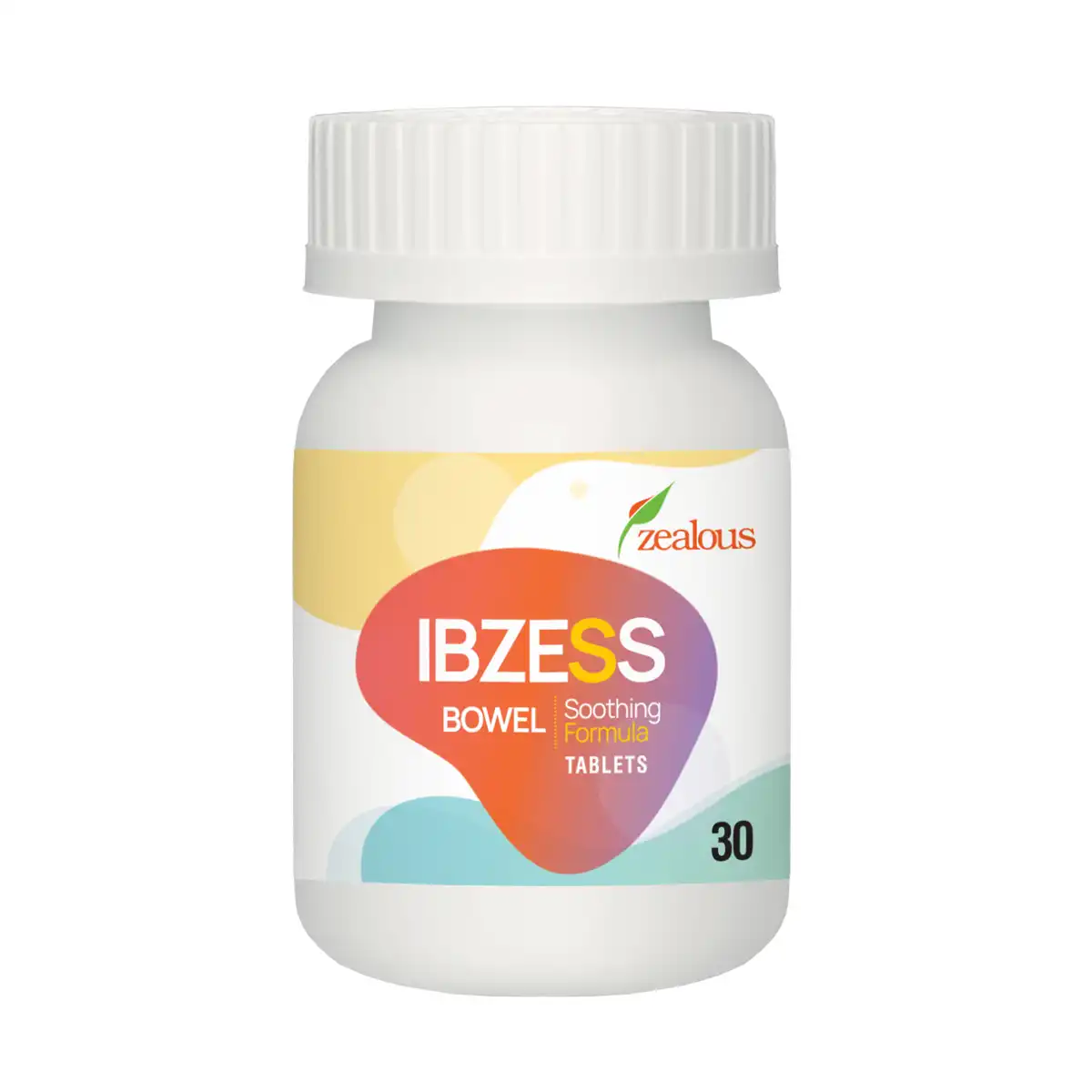
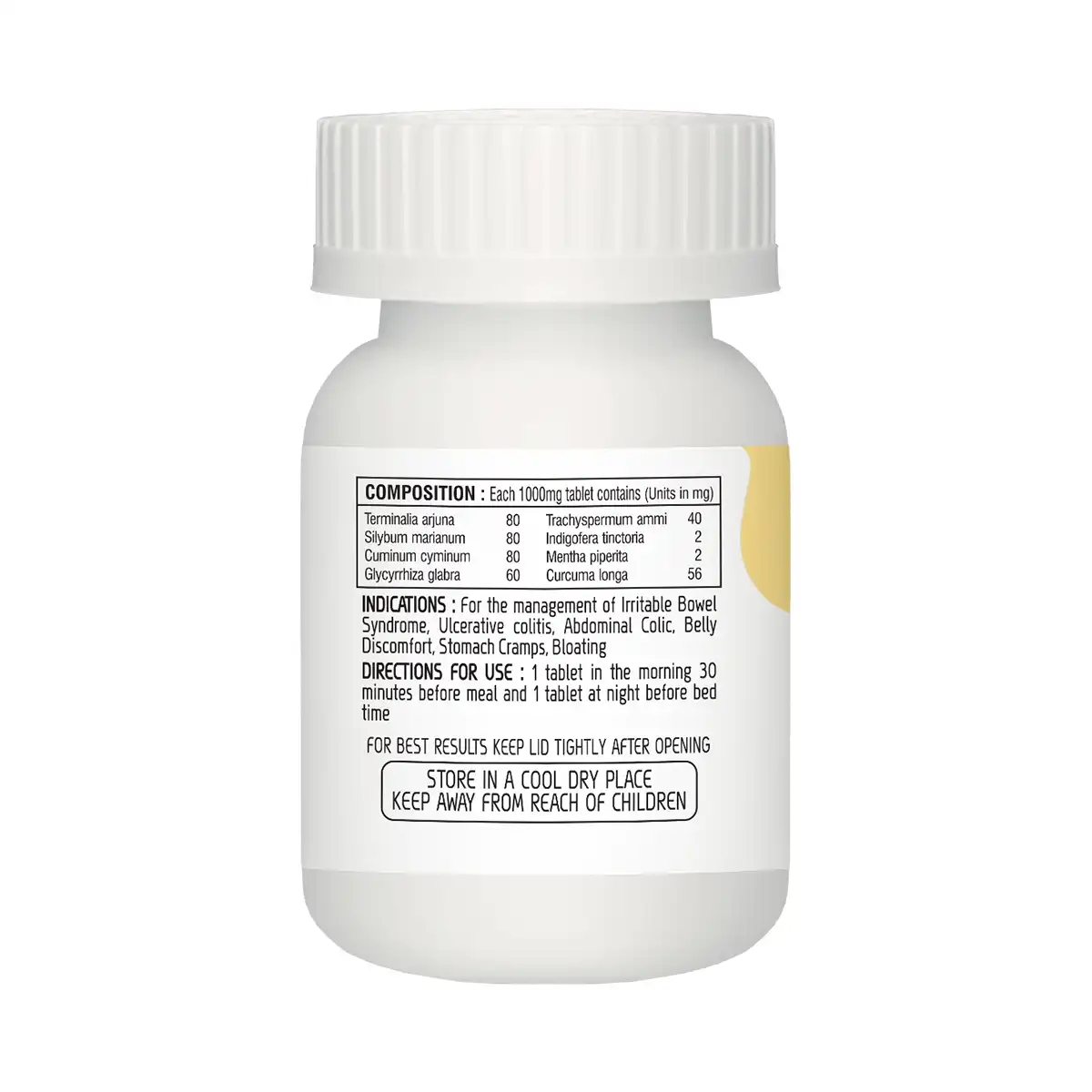
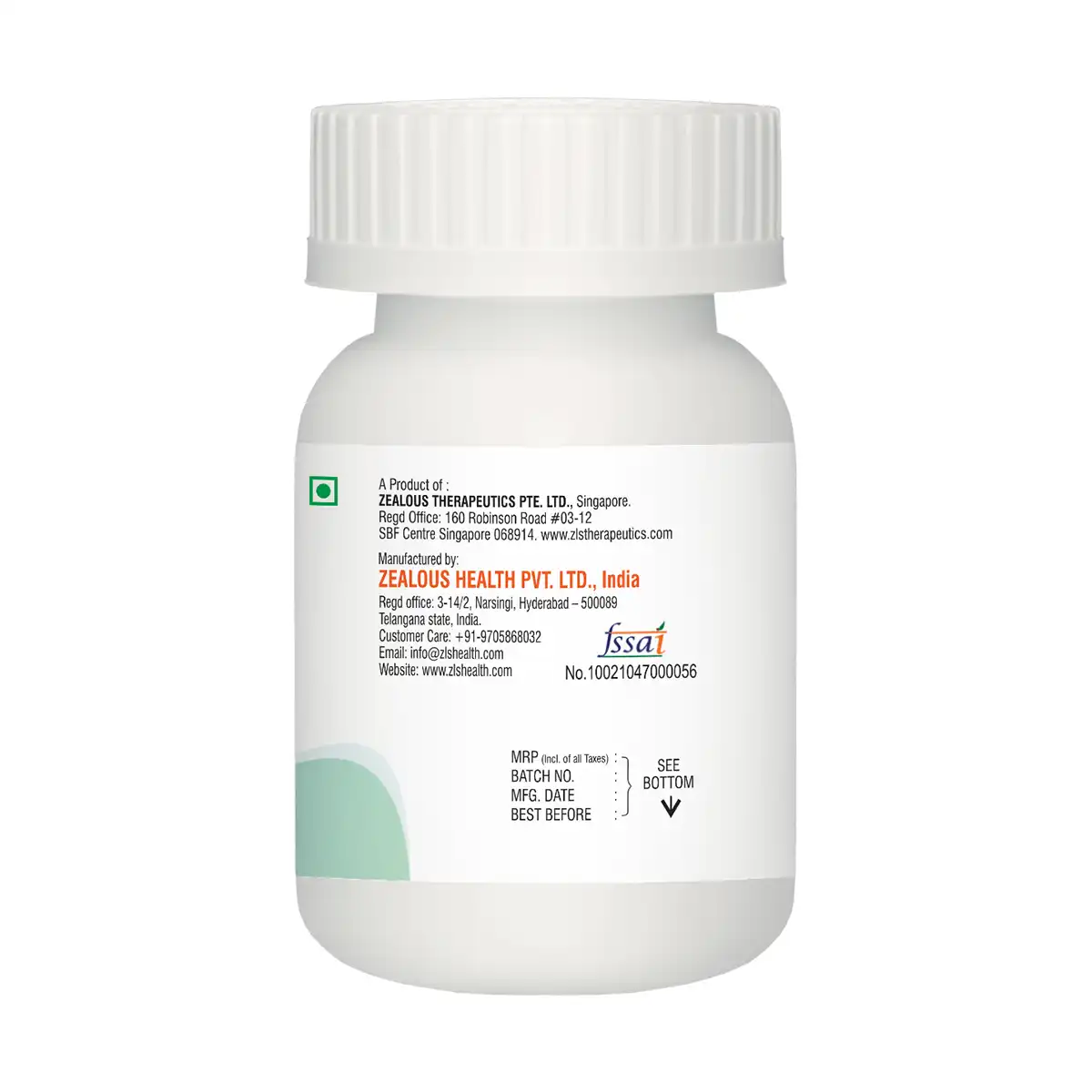
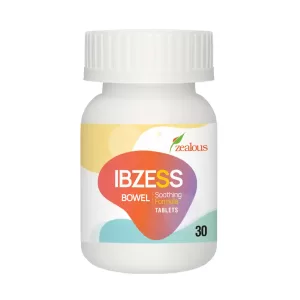
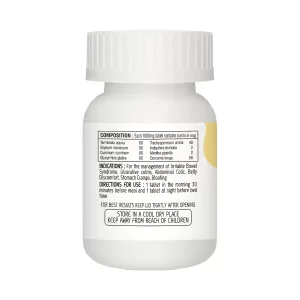
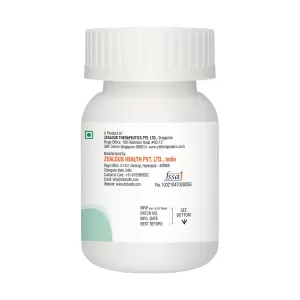

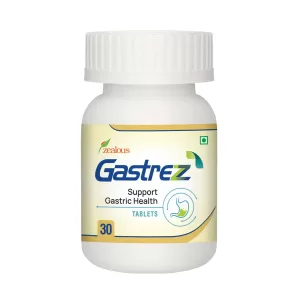


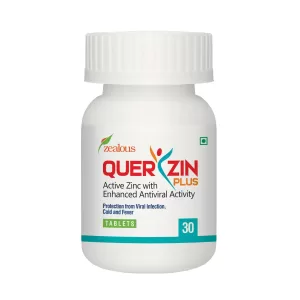
Reviews
There are no reviews yet.